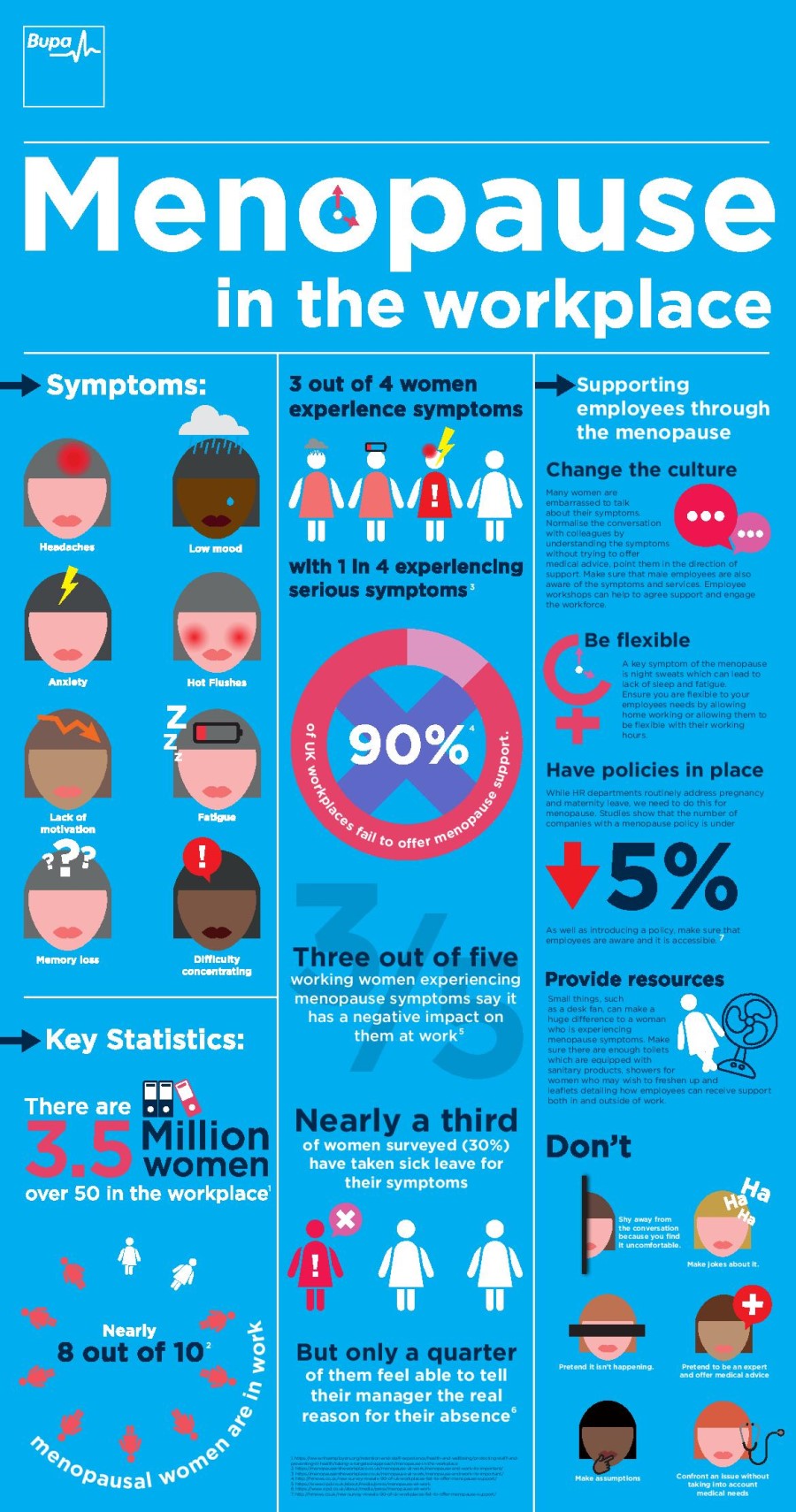The reality of women’s health and its impact on the workplace

Women make up 47% of the working population, but they are underrepresented in % terms at board level. The main contributor to this is breaks in talent pipelines caused by pervasive health and childcare inequality.
Our research survey of 1,004 women in late 2019 shows that female health challenges are causing more than three million women to leave employment, costing businesses in valuable talent.
Periods, fertility struggles, pregnancy and menopause are the main female health events that cause women to take long-term leave.
Those who have taken long-term absence from work because of menopause, take an average of 32 weeks’, to accommodate their symptoms which range from depression, anxiety, hot flushes and mood swings. During this stage of life, which can start in a woman’s early forties, almost a million women have left their job completely.
Meanwhile, more than one million women have left a job because period related problems became unmanageable at work.
That’s a significant loss of female talent because of the menopause and periods alone. In addition, there is fertility problems and the impact of pregnancy and motherhood to consider in between.
In the UK, 3.5 million people have difficulty conceiving, according to figures from The Fertility Network. The Network highlights that the stress of infertility can lead to mental health conditions, with one study finding that 90% of infertile women regularly experience feelings of depression, which can affect their performance at work.
Sadly, in our research, we found that more than one in 10 women said they had been treated unfairly by colleagues because they didn’t understand the discomfort they were experiencing, and 12% said they had worked extra hours to accommodate a lack of productivity while suffering with some of these events.
We want employers to recognise the impact of managing your health as a woman whilst working. Women don’t need special treatment but need businesses to act in a way that levels the playing field, changes perspectives and create cultures where everybody can thrive.
Below are my top three tips to ensure employers meet women’s health needs:
1. Inform and educate
Being informed and educated is critical in addressing the challenges that come with female health. As leaders, we don’t know enough. If we are to help women in the workplace during the different stages of their life, we need to invest in our own understanding and learning.
At Bupa Health Clinics, we want to encourage companies to understand female health. Last year, we created infographics (see below) and a health and safety risk assessment form for employers and employees to use on the menopause.
Businesses that arm their female workforce with the right, authoritative advice and practical information will be taking the right first steps in helping them to feel included and supported.
2. Change the culture
We need to change the culture around female health. Women are physiologically different to men, and their different needs are not always addressed in the workplace. Whether that’s offering breaks to menopausal women, flexible working arrangements during fertility or simply having period products in the toilet.
Actions like this show a business is making positive steps to become more inclusive, which can help in its talent retention. More women are in the workplace, and for longer with the retirement age getting later, so it’s in a business’s interest to support them, before they lose them. We need to act now. Connect with employees, offer the right resources and promote inclusivity.
3. Normalise the conversation
The menopause, periods and trying to conceive can be embarrassing topics to talk about, so it’s not really a surprise that they aren’t openly talked about in the workplace. The fact that we’re losing female talent because of it, is nonsensical.
It’s within our power, as leaders, to normalise the conversation around female health, and if we do, businesses will reap the benefits of being at the front-end of recruiting and retaining female talent.
The author is Alaana Linney, commercial director, Bupa Health Clinics.
This article is provided by Bupa Health Clinics.

Supplied by REBA Associate Member, Bupa
Bupa's purpose is helping people live longer, healthier, happier lives and making a better world.







